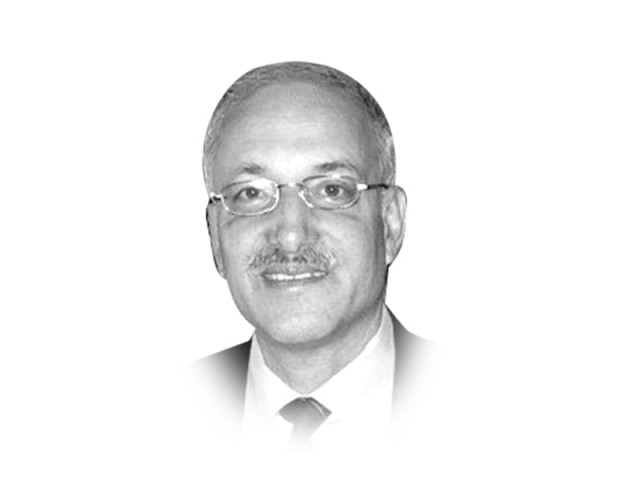Language, gender and power
Our words, our sayings, our songs, our jokes, our stories and poetry — all carry the values which construct gender.

tariq.rahman@tribune.com.pk
Gender is not the same as sex. The latter is being biologically male or female; the former is what we expect from each. In short, gender is constructed while sex is a given. In Pakistan, for instance, we expect girls to behave modestly, not to whistle at boys, not to have street fights and so on. Children will be socialised in these gender roles and people will consider them natural, inborn, intrinsic and appropriate. But a study of anthropology and history tells us that these gender roles keep changing so they are not natural but taught. But where does language come in, you will ask? It comes in because it is through language that we construct gender. Our words, our sayings, our songs, our jokes, our stories and poetry — all these carry the values which construct gender. We have a vocabulary related to the behaviour of women in society and the salient words in it revolve on concepts related to honour and modesty: ghairat, izzat, haya, sharm, etc. And so emotive are the terms that they make people rise in blind rage and kill their womenfolk if they are even suspected of transgressing gender roles, i.e., a girl just talking to a boy or smiling at him. In a Western country, not to interact with boys would be abnormal behaviour for a girl; here doing the opposite may be a death sentence. We use words to construct, convey and reinforce these expectations, and we give them the status of norm so language constructs our social reality.
And now for the concept of power. This can be defined in various ways but I assume you will call it the capacity to do things; to get yourself obeyed; to resist other people and get your ideas accepted; to control goods and services and so on. I call it the capacity to find gratification or pleasure, whether immediate or postponed (my book Language and politics in Pakistan [1996] explains this), but let us stick to your definition given above. You will immediately understand how the world view of a society empowers some, while disempowering others. If a society believes that the elite, the ashraf, are honourable and deserve deference, then that will seem natural to everybody, including those kammis who are thus dishonoured. This phenomenon, the acceptance of values and attitudes, which favour the dominant group by the subordinate groups themselves, is called hegemony. The term is used by the author to explain how anti-female stereotypes are accepted by women themselves. It was coined by the Italian Marxist thinker Antonio Gramsci, who died in prison for his views. Our constant use of language brainwashes us to establish the hegemony of the ideas of the dominant group.
These then are the ideas which Dr Siddiqui fleshes out with studies of our linguistic discourses (writings, utterances, etc.). His work is pioneering since, while the above ideas have been discussed by Western academics for the last 20 years or so, this is the first time a Pakistani scholar has actually applied them to our society. There are chapters on jokes, songs, matrimonial advertisements, proverbs, fairy tales, drama and fiction in which the familiar is rendered as unfamiliar; the seemingly innocuous turns out to be Machiavellian and we find the ugly face of racism and sexism behind the jokes we laughed at and the songs we enjoyed. The main point is that women are represented as unintelligent, boring (as wives and sisters but not as beloveds), chattering, emotional and cowardly in our public discourses. Our conventional wisdom in proverbs reinforces these negative stereotypes also. Advertisements, songs, poetry and drama also reinforce these stereotypes and also represent women as sex objects to the exclusion of all other aspects of their humanity. The matrimonial advertisements commodify them as if they were on sale for their looks, culinary expertise, housekeeping ability and the art of pleasing the husband and his family. The author tells us that this is true of India and Sri Lanka also, which of course, adds to the strength of his argument.
This is a much-needed book since the only literature on such issues was Western in origin. Indigenous sources, though rich in these stereotypes, had not been explored earlier. Now we have a book which can take the interested reader — and one requires no background knowledge in sociology, sociolinguistics or gender studies to read this book — into the heart of our Pakistani social reality of discrimination against women. In this book, we can see how closely language is tied to this discrimination. Dr Siddiqui goes on to suggest that we can reform our language so that it should not be so anti-women (sexist). After all, there are movements in the world to reform language. For instance, they have replaced chairman with chairperson; Mrs and Miss with Ms; he with s/he or she and he; mankind with humankind or humanity and so on. This kind of movement is required in Pakistan and Dr Siddiqui joins the list of those few Pakistanis, who advocate that we reform our language. I hope the book succeeds since it is needed as an antidote to our rising gender discrimination, as well as a welcome addition to scholarship.
Published in The Express Tribune, November 25th, 2013.
Like Opinion & Editorial on Facebook, follow @ETOpEd on Twitter to receive all updates on all our daily pieces.















COMMENTS
Comments are moderated and generally will be posted if they are on-topic and not abusive.
For more information, please see our Comments FAQ